
17 succinct improvisations recorded in 2000 from the trio of the late and legendary German free improvising bassist Peter Kowald, West Coast bassist Damon Smith, and alto saxophonist Marco Eneidi, powerful and lyrical improv with a nod to Ayler amidst brilliant playing.
Out of Stock
Quantity in Basket: None
Log In to use our Wish List
Shipping Weight: 3.00 units
Sample The Album:
Marco Eneidi-alto saxophone
Peter Kowald-bass
Damon Smith-bass
Spirit-drums
Click an artist name above to see in-stock items for that artist.
UPC: 5907589871692
Label: Not Two
Catalog ID: MW 769-2
Squidco Product Code: 20494
Format: CD
Condition: New
Released: 2006
Country: Poland
Packaging: Cardboard Gatefold
Recorded at Headless Budda Studio in Oakland, California, on May 3rd, 2000 by Myles Boisen.
"[...] The bass duo of Damon Smith and the late Peter Kowald can be heard on Smith's own Balance Point Acoustics label; this set puts the pair in the company of saxophonist Marco Eneidi and the enigmatic drummer Spirit, whom I'd never heard before.
The earthiness of the Smith/Kowald duo is in full effect on tracks like "David, with Bert, plays Mahler" or the title track, both players being rooted in a confluence of stereotypically "American" and "European" modes of dialogic improv. "A Tiny Hole in Tuva" is a bit of a surprise when the bassists create a gorgeous drone, but Eneidi's playing is even more startling. I was not prepared for the sheer force of his presence on this session, the bent bravura and speech-song venom with which he can attack and elongate a phrase. It's not all Ayleresque or Brotzmanian fire and brimstone, however, even though the dynamic level is often high; "Breakfast with a Dervish," a brief Eneidi solo outing, is positively other-worldly, exuding a kind of cosmically Eastern ethnicity. Some of his best work.
At the other end of the spectrum is the aptly named Spirit, whose sound often hovers on the edges of audibility. It's actually quite intricate, a myriad of tinkles, soft ametric intertwinings and the occasional rattle and thump only hinting at jazz rhetoric. His handling of timbre and space on "The Unforseen is What is Beautiful" is positively exquisite, his lines cut from the most delicately ornate fabric.
The two opposing forces, Spirit and Eneidi, bob and weave around the bassists, who form the axis around which all forces revolve. They are the anchor in an ever-changing stylistic storm, and it's this oil-and-water aesthetic that makes the disc such a joy to experience. Even though I'd like to have heard some of these pieces extended, most being in the two-to-six minute range, their quick-fire juxtaposition also gives the disc an ironic unity. This is a wonderfully adventurous set on many levels, and I'm glad it finally saw the light of day."-Marc Medwin, Dusted Reviews
Artist Biographies
• Show Bio for Marco Eneidi "Marco Eneidi (November 1, 1956 – May 24, 2016) was an American jazz alto saxophonist. He was primarily associated with free jazz. Eneidi was born in Portland, Oregon. His father worked for the Lawrence Berkeley National Laboratory and his mother was a paralegal. Eneidi and his family lived in Livermore before moving to Oakland, California. As a child, he took lessons with Sonny Simmons. He attended Mt. Hood Community College before earning a Bachelor of Arts degree from Sonoma State University and Master of Arts from Mills College. Later in his career, he studied North Indian classical music at the Ali Akbar College of Music in San Rafael, California. Eneidi moved to New York City in 1981 to study with Jimmy Lyons. He started to play with Jackson Krall, William Parker and Denis Charles. In 1984, he was hired by Bill Dixon to teach at Bennington College. In the early-1990s, he recorded his first important dates as a leader, such as Final Disconnect Notice. He was hired by Cecil Taylor, with whom he played in Europe. Eneidi moved back to the West Coast in the late 1990s, notably playing with Glenn Spearman. In 2005, he moved to Vienna, where he ran weekly free improvisation sessions until his move to Mexico in 2015." ^ Hide Bio for Marco Eneidi • Show Bio for Peter Kowald "Born 1944 in Germany, died 21 September 2002 New York City; double bass, voice, tuba. Peter Brötzmann (Corbett, 1994) recounted that 'there was this young guy trying to play the bass, who was Mr Kowald, at that time seventeen years old. Peter lived with his parents. I had my little studio, so he was always hanging out at my place. But he had to be at home at 10.00, he was drinking milk. But we changed that, very soon. His parents were always very angry with me, because he never showed up at home anymore, he dropped studies of ancient languages, Greek and all that.' By this time (1962) Peter Kowald had been playing bass for two years and, with different drummers the two Peters were playing Mingus, Ornette, and Miles Davis things as well as listening to Coltrane, Stockhausen, Cage et al. Kowald was part of the European tour undertaken by the Carla Bley/Michael Mantler band in 1966 (also featuring Brötzmann) and then came work with other German musicians, membership of the Globe Unity Orchestra and the first recordings: Globe Unity, For Adolphe Sax and Summer 1967, recorded during a brief vacation in London. In particular, Evan Parker credits this visit to London for his invitation to play in the Pierre Favre/Irene Schweizer quartet and his subsequent longstanding involvement with German (and other European) musicians. Kowald's work with Brötzmann continued - on and off - on record at least, to the time of Kowald's death and included the Cooperative Trio with Andrew Cyrille, a duo on the Duos project and a recent mix of free jazz, hip-hop and rap. Peter Kowald was a member of Globe Unity Orchestra for 12 years (1966 to 1978) and for much of this time played less of a side-man role and more of an equal partner - for example, conducting the band - with the person to whom the group has become most associated, Alex von Schlippenbach. His influence is particularly noticeable on Jahrmarkt/Local fair where the two sides of composition are by Kowald (as is the second side of Live in Wuppertal and he is also credited, along with Paul Lovens as 'producing' the record, presumably sorting out the sprawling theatricality and poor sound into two 'meaningful' fragments. In his notes to 20th anniversary, Schlippenbach emphasises the importance of Kowald in creating a programme that became a lot more 'colourful'; while further pointing out that he and Kowald gradually drifted further apart 'until one fine evening after lengthy discussions which resulted in a fight in a pub in Wuppertal, this chapter also closed'. However, before this ending, from 1973 to 1978, Kowald also worked with the Schlippenbach trio (Schlippenbach/ Parker/Paul Lovens), turning it for much of this time into a regular quartet. Throughout his career, Peter Kowald worked with a wide variety of improvising musicians worldwide and in many considered and unusual situations. He recorded bass duets with Barry Guy, Barre Phillips, Peter Jacquemyn, Maarten Altena, Damon Smith and William Parker, released two solo bass recordings, and had regular groups with Leo Smith and Günter Sommer; with Joëlle Léandre and dancer Anne Martin (Trio Tartini); with dancers Cheryl Banks and Arnette de Mille and cellist Muneer Abdul Fataah (Music and Movement Improvisation); a trio with pianist Curtis Clark; a trio with Canadian alto saxophonist Yves Charuest and Louis Moholo; and Principle Life with Jeanne Lee, Klaus Hovman, and Marilyn Mazur. During the period 1980 to 1985 he was a member of the London Jazz Composers' Orchestra. He has spent periods in the US and in Japan and recorded three duo LPs (two CDs) with US, European and Japanese musicians. He also lived in Greece and similarly played and recorded with the Greek musicians Floros Floridis and Ilias Papadopoulos. By contrast, the 12 months May 1994 to May 1995 was designated Kowald's 'Year at home' project which comprised a mixture of solo works - out of which, to some extent, the last solo CD grew (Was da ist) - and group performances. In addition, Peter Kowald collaborated extensively with poets and artists and with the dancers Gerlinde Lambeck, Anne Martin, Tadashi Endo, Patsy Parker, Maria Mitchell, Sally Silvers, Cherly Banks, Arnette de Mille, Sayonara Pereira, and Kazuo Ohno. Specific works included Die klage der kaiserin (1989) with Pina Bausch, Short pieces (since 1989) with Jean Sasportes, The spirit of adventure (1990) with Anastasia Lyra, Wasser in der hand (1990/91) with Christine Brunel, and Futan no sentaku/The burden of choice (1990/91) with Min Tanaka and Butch Morris." ^ Hide Bio for Peter Kowald • Show Bio for Damon Smith "Damon Smith studied double bass with Lisle Ellis and has had lessons with Bertram Turezky, Joëlle Leandré, John Lindberg, Mark Dresser and others. Damon's explorations into the sonic palette of the double bass have resulted in a personal, flexible improvisational language based in the American jazz avant-garde movement and European non-idiomatic free improvisation. Visual art, film and dance heavily influence his music, as evidenced by his CAMH performance of Ben Patterson's Variations for Double Bass, collaborations with director Werner Herzog on soundtracks for Grizzly Man and Encounters at the End of the World, and an early performance with the Merce Cunningham Dance Company. Damon has collaborated with a wide range of musicians, including: Cecil Taylor, Marshall Allen (of Sun Ra's Arkestra), Henry Kaiser, Roscoe Mitchell, Michael Pisaro, Wadada Leo Smith, Marco Eneidi, Wolfgang Fuchs, Peter Brötzmann and Peter Kowald. After many years in the San Francisco Bay Area, and five great years in Houston, Texas working regularly with Alvin Fielder, Sandy Ewen, David Dove & Chris Cogburn, Damon will move to the Boston area in the fall of 2016. Damon has run Balance Point Acoustics record label since 2001, releasing music focusing on transatlantic collaborations between US and European musicians." ^ Hide Bio for Damon Smith
3/31/2025
Have a better biography or biography source? Please Contact Us so that we can update this biography.
3/31/2025
Have a better biography or biography source? Please Contact Us so that we can update this biography.
3/31/2025
Have a better biography or biography source? Please Contact Us so that we can update this biography.
Track Listing:
1. A Tiny Hole In Tuva 2:50
2. Psylium 4:02
3. Tangled Lines 4:38
4. Ghetto Calypso 6:05
5. Sufi Prayer 1:20
6. David, With Bert, Plays Mahler 4:24
7. Breakfast With a Dervish 2:12
8. The Unforseen Is What Is Beautiful 6:18
9. Cracked Mirrors, for Example, or the Long Faded Portrait of One of your friends? 3:11
10. Pull, Push, Jump (Up) 6:04
11. Obo 2:41
12. Black Dots 6:37
13. Last Call for a Bawdy-House Sweetheart 2:00
14. Gargoyles 2:24
15. Flight of the Marabou 0:53
16. New Music Pygmies 6:22
17. Easiness Found 6:40
Improvised Music
Free Improvisation
European Improvisation and Experimental Forms
West Coast/Pacific US Jazz
Trio Recordings
Staff Picks & Recommended Items
Search for other titles on the label:
Not Two.


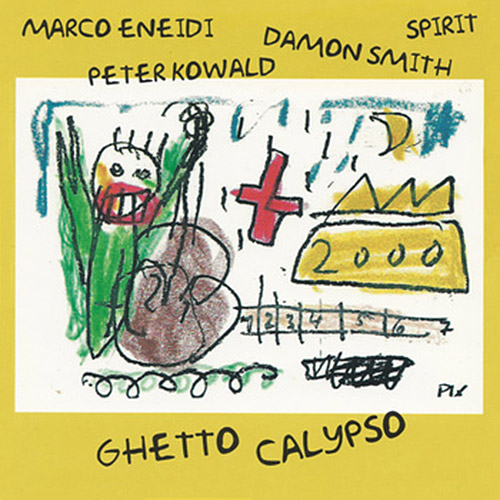
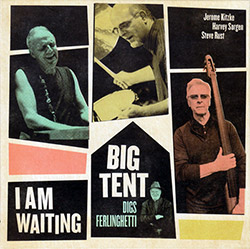
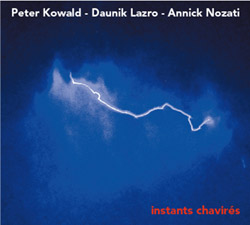




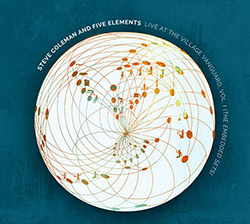


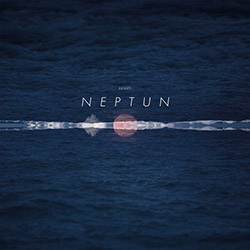


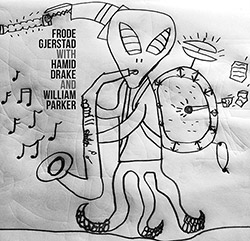

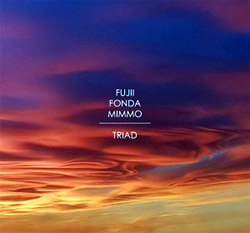

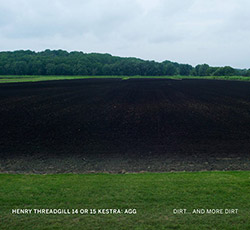



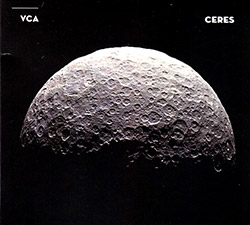


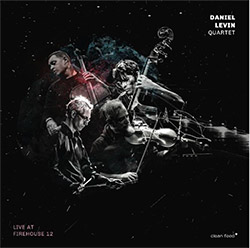

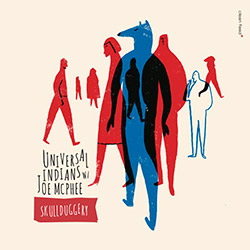

![Rodrigues, Ernesto / Nuno Torres / Guilherme Rodrigues: Whispers In The Moonlight - In Seven Movements [2CDs]](https://www.teuthida.com/productImages/misc4/35765.jpg)



![Cocks, Laura: FATHM [VINYL]](https://www.teuthida.com/productImages/misc4/36055.jpg)










![Ackerley / Prymek / Turner: All Hope With Sleeping Minds [CASSETTE]](https://www.teuthida.com/productImages/misc4/35950.jpg)
![Myers, David Lee : Tin Drop Tear [BOOK w/ DOWNLOAD]](https://www.teuthida.com/productImages/misc4/36030.jpg)



![Schindler, Udo / Sandy Ewen / Damon Smith: Munich Sound Studies Vols. 4, 5 & 6 [3 CDs]](https://www.teuthida.com/productImages/misc4/35966.jpg)






![Turbulence Orchestra & Sub-Units: Smear Out the Difficulties (Double Live) [2 CDs]](https://www.teuthida.com/productImages/misc4/36048.jpg)
![Perelman, Ivo / Tyshawn Sorey: Paralell Aesthetics [2 CDs]](https://www.teuthida.com/productImages/misc4/35871.jpg)


![Sjostrom, Harri: SoundScapes #4 Festival Berlin 2023 [3 CDs]](https://www.teuthida.com/productImages/misc4/35874.jpg)



![Glenn, Jordan: Flustered [CASSETTE]](https://www.teuthida.com/productImages/misc4/35948.jpg)


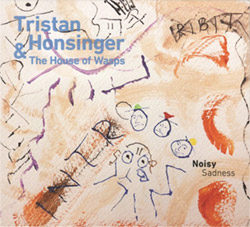
![Lindorff-Ellery, Evan: Church Recordings from Monhegan [CASSETTE]](https://www.teuthida.com/productImages/misc4/35949.jpg)
![Schindler, Udo / Werner Dafeldecker / Gunnar Geisse: Travelling Sound Images - Cognitive Transfers [Trio]](https://www.teuthida.com/productImages/misc4/35767.jpg)

![Egberth, Dennis: The Dennis Egberth Dynasty [VINYL]](https://www.teuthida.com/productImages/misc4/35549.jpg)


![Schindler, Udo / Rieko Okuda / Eric Zwang Eriksson: Disturbed Terrains [2 CDs]](https://www.teuthida.com/productImages/misc4/35330.jpg)






![Olencki, Weston : Pearls Ground Down To Powder [VINYL]](https://www.teuthida.com/productImages/misc4/35956.jpg)
![Myers, David Lee: Oculus [2CDs]](https://www.teuthida.com/productImages/misc4/35857.jpg)


![dustsceawung: dustsceawung [CASSETTE w/ Download]](https://www.teuthida.com/productImages/misc4/35753.jpg)




![Halls of the Machine: Atmospheres For Lovers And Sleepers [CASSETTE w/ DOWNLOAD]](https://www.teuthida.com/productImages/misc4/35806.jpg)



![AHC (Alexander Cooper): Lase [2 CDs]](https://www.teuthida.com/productImages/misc4/35754.jpg)



![Fagaschinski, Kai / Yan Jun : Graveyard Processions [VINYL w/ DOWNLOAD]](https://www.teuthida.com/productImages/misc4/35474.jpg)
![Brant, Cody / Carl Kruger: Smoke Detail [CASSETTE w/ DOWNLOAD]](https://www.teuthida.com/productImages/misc4/35551.jpg)








![Zorn, John / JACK Quartet: The Complete String Quartets [2 CDs]](https://www.teuthida.com/productImages/misc4/35609.jpg)

![Lonsdale, Eden: Dawnings [2 CDs]](https://www.teuthida.com/productImages/misc4/35480.jpg)







![Sanna, Claudio: Compositori Sardi Contemporanei II [2 CDs]](https://www.teuthida.com/productImages/misc4/35317.jpg)







![Zurria, Manuel: Fame di Vento [3 CDs]](https://www.teuthida.com/productImages/misc4/35167.jpg)

![Granberg, Magnus / Nattens Inbrott / Skogen: Holde Traume, Kehret Wieder! [2 CDs]](https://www.teuthida.com/productImages/misc4/35038.jpg)

![Electric Bird Noise / Derek Roddy: 8-10-22 [CD EP]](https://www.teuthida.com/productImages/misc4/35970.jpg)








![Elephant9 : Mythical River [VINYL]](https://www.teuthida.com/productImages/misc4/34624.jpg)



![Elephant9 with Terje Rypdal: Catching Fire [VINYL 2 LPs]](https://www.teuthida.com/productImages/misc4/35355.jpg)
![Deerlady (Obomsawin, Mali / Magdalena Abrego): Greatest Hits [VINYL]](https://www.teuthida.com/productImages/misc4/34876.jpg)







![Surplus 1980: Illusion of Consistency [CD]](https://www.teuthida.com/productImages/misc4/35069.jpg)
![Staiano, Moe: Away Towards the Light [VINYL + DOWNLOAD]](https://www.teuthida.com/productImages/misc4/35037.jpg)



![Caveira (Gomes / Sousa / Abras / Ferrandini): Ficar Vivo [VINYL]](https://www.teuthida.com/productImages/misc4/34643.jpg)
![Coley, Byron: Dating Tips for Touring Bands [VINYL]](https://www.teuthida.com/productImages/misc4/17906.jpg)

![Lost Kisses: My Life is Sad & Funny [DVD]](https://www.teuthida.com/productImages/misc4/lostKissesDVD.jpg)